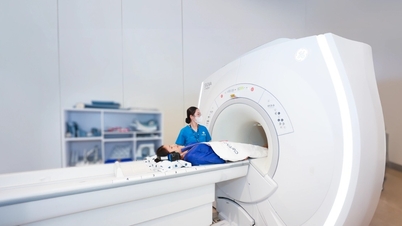If you are a regular runner, chances are you have experienced hip shock. This sharp pain, usually felt in the abdomen, has no known cause, but there are ways to avoid it.
Applied sports scientist Jonathan Robinson of the University of Bath (UK) told the newspaper Independent says that hip shock is “one of those situations where there is no definitive answer.” However, several studies have shown that repetitive trunk movements with high-intensity extension can affect the phrenic nerve.
Restricted blood flow to the diaphragm, arterial compression, ligament strain, nerve irritation, and stomach pain appear to be less common in walkers and cyclists than in runners.

Don't overeat to reduce hip shock when running.
Although the cause is still quite vague, Jonathan Robinson still affirms that the timing of eating and drinking determines the condition of hip shock when running.
He advises that if you can ensure you don't eat too much at least two hours before running and limit foods high in simple sugars, this will help reduce hip shock.
Additionally, staying hydrated, drinking little by little instead of a sudden large intake, and warming up thoroughly before running also limits soreness.
Jonathan Robinson cites a similar opinion in a 2014 study in the Journal of Sports Medicine, which recommends avoiding hypertonic compounds before running; improving posture, especially in the thoracic region; and wearing a wide belt that supports the abdominal organs.
If the above measures still do not reduce the hip shock mid-run, you must stop or reduce your running speed.
When slowing down due to hip shock, we should focus a little more on our breathing. Synchronizing your breathing with your stride or running style and avoiding shallow breathing can be effective in reducing hip shock.
Source: https://thanhnien.vn/lam-sao-tranh-soc-hong-khi-chay-bo-18525022817113557.htm



![[Photo] General Secretary To Lam attends the ceremony to celebrate the 80th anniversary of the post and telecommunications sector and the 66th anniversary of the science and technology sector.](https://vphoto.vietnam.vn/thumb/1200x675/vietnam/resource/IMAGE/2025/9/29/8e86b39b8fe44121a2b14a031f4cef46)
![[Photo] General Secretary To Lam receives US Ambassador to Vietnam Marc Knapper](https://vphoto.vietnam.vn/thumb/1200x675/vietnam/resource/IMAGE/2025/9/29/c8fd0761aa184da7814aee57d87c49b3)
![[Photo] National Assembly Chairman Tran Thanh Man chairs the 8th Conference of full-time National Assembly deputies](https://vphoto.vietnam.vn/thumb/1200x675/vietnam/resource/IMAGE/2025/9/29/2c21459bc38d44ffaacd679ab9a0477c)

![[Photo] Many streets in Hanoi were flooded due to the effects of storm Bualoi](https://vphoto.vietnam.vn/thumb/1200x675/vietnam/resource/IMAGE/2025/9/29/18b658aa0fa2495c927ade4bbe0096df)































































































Comment (0)